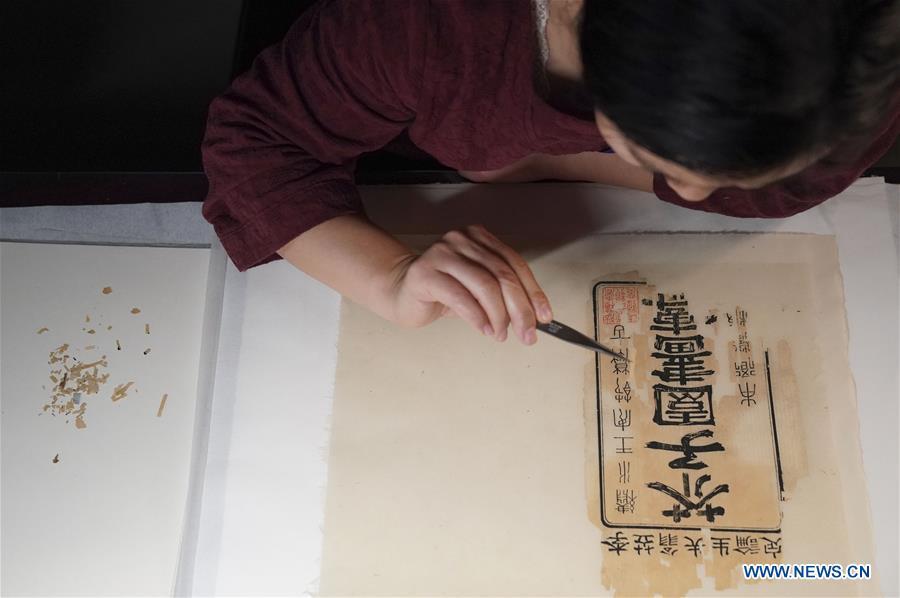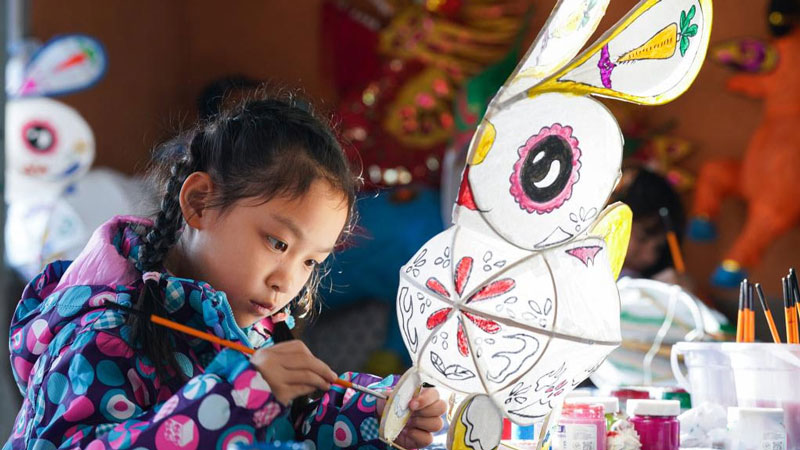Digitization boosts access to ancient Chinese books

Restorer Tian Tingting demonstrates the process of the restoration of an ancient book during an activity held by the National Library of China in Beijing, capital of China, Oct. 11, 2019. (Xinhua/Yin Gang)
Recently, 6,786 volumes of digitized ancient Chinese books were launched online by the National Center for Preservation and Conservation of Ancient Books at the National Library of China (NLC) and five other institutions, bringing the total number of digitized ancient books available online to 130,000.
This is the seventh expansion of the country’s national database of ancient Chinese books since its establishment.
The NLC established the Chinese Ancient Books Resources Database in 2016 and launched digital resources including ordinary ancient texts, oracle bone inscriptions, and Dunhuang documents discovered in the Mogao Grottos in northwest China’s Gansu Province, according to Nan Jiangtao, an associate researcher at the NLC, adding that the digital resources were available online.
The national database of ancient Chinese books consequently took shape thanks to the joint efforts of the NLC and other institutions.
So far, the NLC has released digitized ancient Chinese books along with 39 institutions. Data shows that among the current 130,000 volumes of digitized ancient books recorded in the national database, over 102,000 volumes are from the Chinese Ancient Books Resources Database.
These 130,000 digitized ancient books are of great significance to researchers, said Yang Haizheng, a professor at the Department of Chinese Language and Literature, Peking University (PKU).
It is not enough just to turn paper-based ancient books into digital texts. Yang explained that most of the existing digital ancient Chinese books are based on scanned images and usually lack a search function.
The rapid development of artificial intelligence brings tremendous changes to the collation of ancient books. A digital ancient book platform co-launched by the Center for Digital Humanities of PKU and Chinese tech company ByteDance serves as a vivid example.
“Unlike some other digital platforms, this platform is free and offers a full-text search function,” said Tang Kaixin, product general manager at the social responsibility department of Douyin, a subsidiary of ByteDance.
Tang explained that technologies including text recognition and automatic punctuation generation were applied to process texts on photocopies of ancient books.
“The platform has released 685 classic ancient books with over 79 million characters,” Tang said.
“We have excellent product managers, designers and software engineers who constantly optimize the functions of the digital ancient book platform,” Tang added.
Photos
Related Stories
Copyright © 2023 People's Daily Online. All Rights Reserved.









